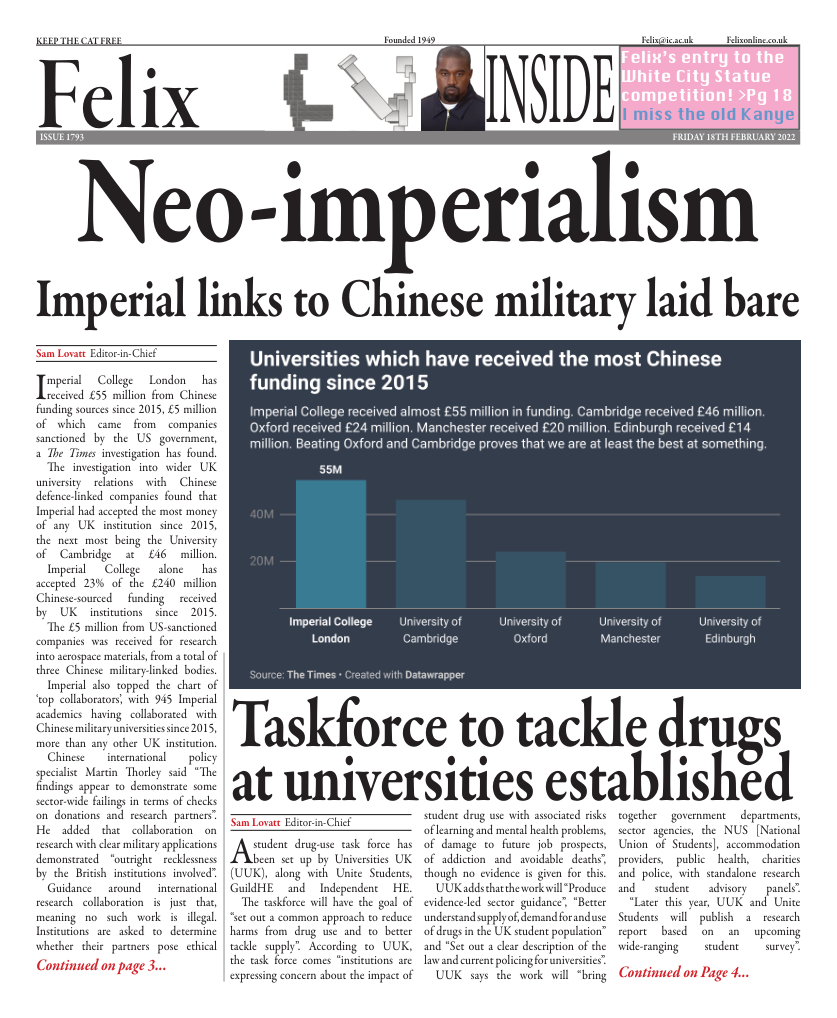The Government vs Encryption
Over the last month, the Government has rolled out a marketing barrage under its #NoPlaceToHide campaign.

Over the last month, the Government has rolled out a marketing barrage under its #NoPlaceToHide campaign. Funded by £500,000 of public funds and managed by the Conservatives’ favourite PR firm M&C Saatchi, the programme sees the Home Office partner with charities and law enforcement, targeting the rollout of end-to-end encryption (E2EE) across social media.
In 2014, former defence contractor Edward Snowden leaked over 1.7 million classified intelligence files to investigative journalists. The documents revealed how intelligence agencies in the Five Eyes alliance – comprising of the USA, the UK, Canada, Australia, and New Zealand – gathered massive amounts of data indiscriminately, from people around the world. American tech companies, including Apple, Google, Microsoft and Facebook, had either been forced to support these activities, or had backdoors placed in their systems without their knowledge.
In order to regain users’ trust, tech companies have spent billions improving the security of their services, and introducing end-to-end encryption. E2EE is where communication between users are secured throughout the message’s journey through the Internet – nobody, not even the messaging service provider, can view the content being sent. Most major communication apps now support E2EE, with Facebook’s announcement that it will roll out E2EE across its communications platforms finally sparking objections from the Government.
The stated aim of the campaign is, on the surface, understandable – the Government claims that encryption will allow sexual abuse of children to go undetected. The Government cites data from a USA-based child safety charity, whose research shows that 94% of reported cases of Child Sexual Abuse Material (CSAM) originates from Facebook services. An estimated 70% of reports – approximately 14 million – would not exist if the company had gone ahead earlier with its rollout of E2EE. Former Met Police Commissioner, Cressida Dick, has also stated that E2EE makes it “impossible” for the police to do their jobs, specifically citing the fight against terrorism. The UK Government is not alone in their opposition – the FBI has repeatedly and publicly attacked the widespread use of encryption, and the Australian government has passed legislation forcing companies to hand over data or face fines.
It is difficult to argue against policy aimed at preventing terrorism and protecting children. The campaign, however, is little more than a propaganda drive, misrepresenting statistics to further the Government’s interests. Terrorism is not prevented by a lack of encryption – as exposed by Snowden, security agencies have no lack of data, and the 2015 attacks in Paris were organised completely over unencrypted text messages. While the example of child abuse is emotive – helped by the M&C Saatchi’s shrewd recruitment of charities such as Barnardo’s – the reality is that very few surveillance applications are made for this crime, with child abuse offences comprising only 0.2% of surveillance requests in Germany.
The campaign has been denounced by digital rights groups around the world, including the UK’s independent data watchdog, the Information Commissioner’s Office (ICO), who have stated that any delay to the rollout of E2EE “leaves everyone at risk, including children”. Encryption underpins the modern internet – online banking, private photos, and your location are all protected by the same mechanism the Government hopes to undermine.
This is but the latest move in a series of authoritarian moves by the Government. A move against encryption would not only show the technological illiteracy of our lawmakers, but also set a dangerous precedent for authoritarian regimes around the world to follow.









